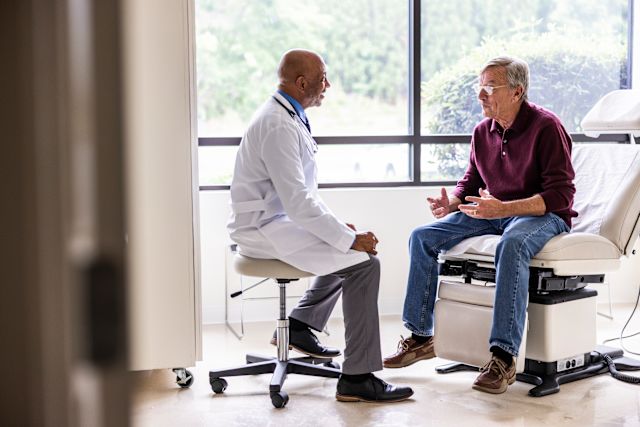Erectile dysfunction (ED) can cause a range of issues, including stress, frustration, and relationship difficulties. The good news is that the condition is treatable and there are more methods for dealing with it than ever before.
The exact treatment you use will depend on what's causing your ED and any underlying conditions you might have. In general, your options include lifestyle changes, counseling, medication, and devices.
Here's what to know about some of the most commonly used treatment approaches for ED—and how they might benefit you.
Lifestyle changes
The first step a healthcare provider (HCP) may take in diagnosing ED is to try to identify and rule out any serious underlying medical causes for your ED, such as issues with nerves or blood vessels. If there are no such issues to treat first, your HCP may recommend you make certain lifestyle changes—such as getting more exercise, eating a healthful diet, and reducing stress—that can set you on the path toward better sexual health.
Counseling
Sometimes ED can have a psychological basis, such as depression, anxiety, or issues with self-esteem. In these cases, speaking with a licensed counselor or sex therapist may help you get things back in working order.
Medication
If your ED is caused by an underlying health problem, such as high blood pressure or heart disease, your HCP may prescribe medication to get blood flowing into the right places again.
If you watch TV, you've probably seen advertisements for many of these drugs. The most commonly known meds for ED—including sildenafil, tadalafil, and vardenafil—are called phosphodiesterase inhibitors. Other formulations may be prescribed as well, depending on the cause of your ED and your overall health condition.
Phosphodiesterase inhibitors
Three well-known oral medications can make it easier to get and keep and erection. Sildenafil, tadalafil, and vardenafil are among the most common. These drugs boost the effects of nitric oxide in the body and improve penis blood flow. About 65 to 70 percent of men who take these drugs have better erections, but they can have side effects and aren't safe for people with some health conditions, such as heart disease or uncontrolled diabetes.
Alprostadil
This drug is inserted into the penis as a suppository, or it can be injected directly into the penis alone or combined with other medications. While about 90 percent of men experience erections from this process, it can be painful and result in bleeding, dizziness, and scar tissue in some cases.
Testosterone
If ED is caused by low testosterone, patches, creams, or injections of testosterone may help you have better erections.
On the flip side, certain medications used for other conditions (such as for depression, blood pressure, or pain) may have the unintended effect of contributing to ED. In these cases, your HCP may be able to make changes to your dosage or suggest an alternative medication that can treat your condition while lowering the risk of sexual side effects.
Injections and devices
While some people may require penile injections to improve ED symptoms, others find help with penile implants, pumps, or vacuums.
Penile implants
If ED meds don't work, a penile implant may help. Implants are surgically inserted into the spongy tissue of the penis and can be semi-rigid or inflatable. They carry the general risks of surgery and usually need to be replaced after about 10 years. Studies show that 70 to 80 percent of men are satisfied with their penile implants.
Penis pumps
Penis pumps are hand- or battery-powered pumps used to create a vacuum that draws blood into the penis, resulting in an erection. A constriction device (aka, a tension ring) is often slipped onto the base of the penis to maintain the erection. Pain, bruising, and difficulty ejaculating are common side effects.
The outlook for patients with ED is good. Just remember that the key is to have frank, open conversations with your HCP about your issues so that you can work together on a solution that makes the most sense for you.







